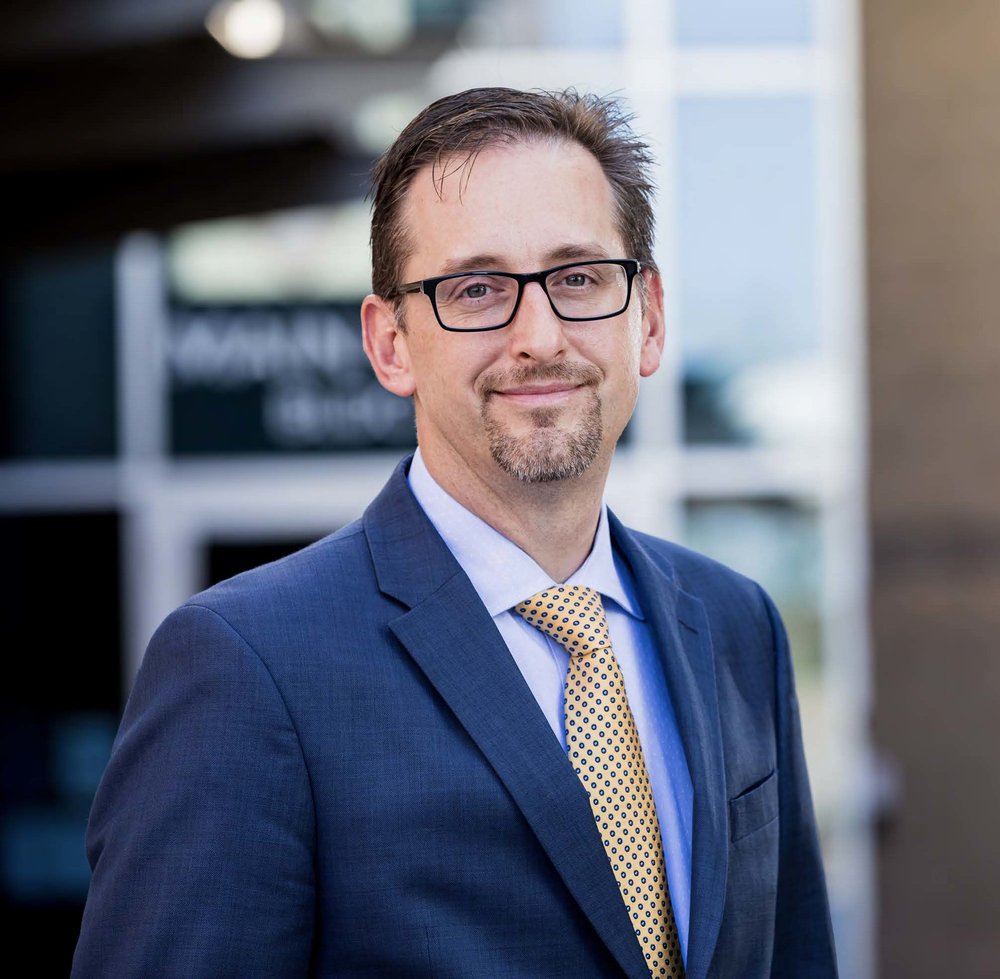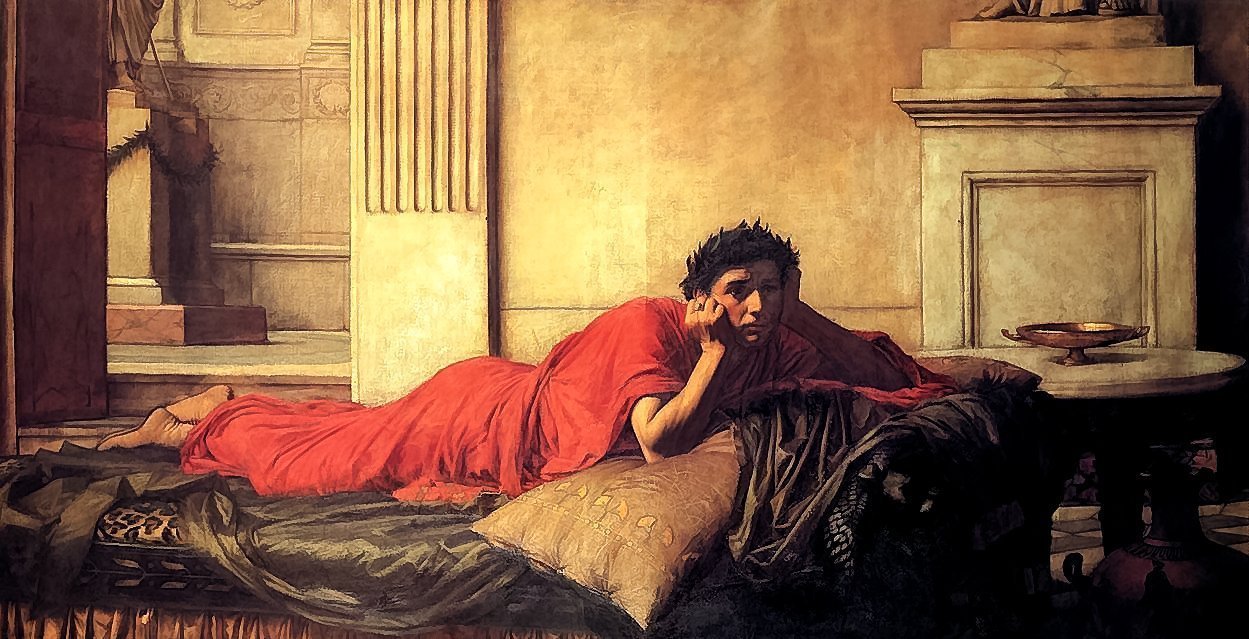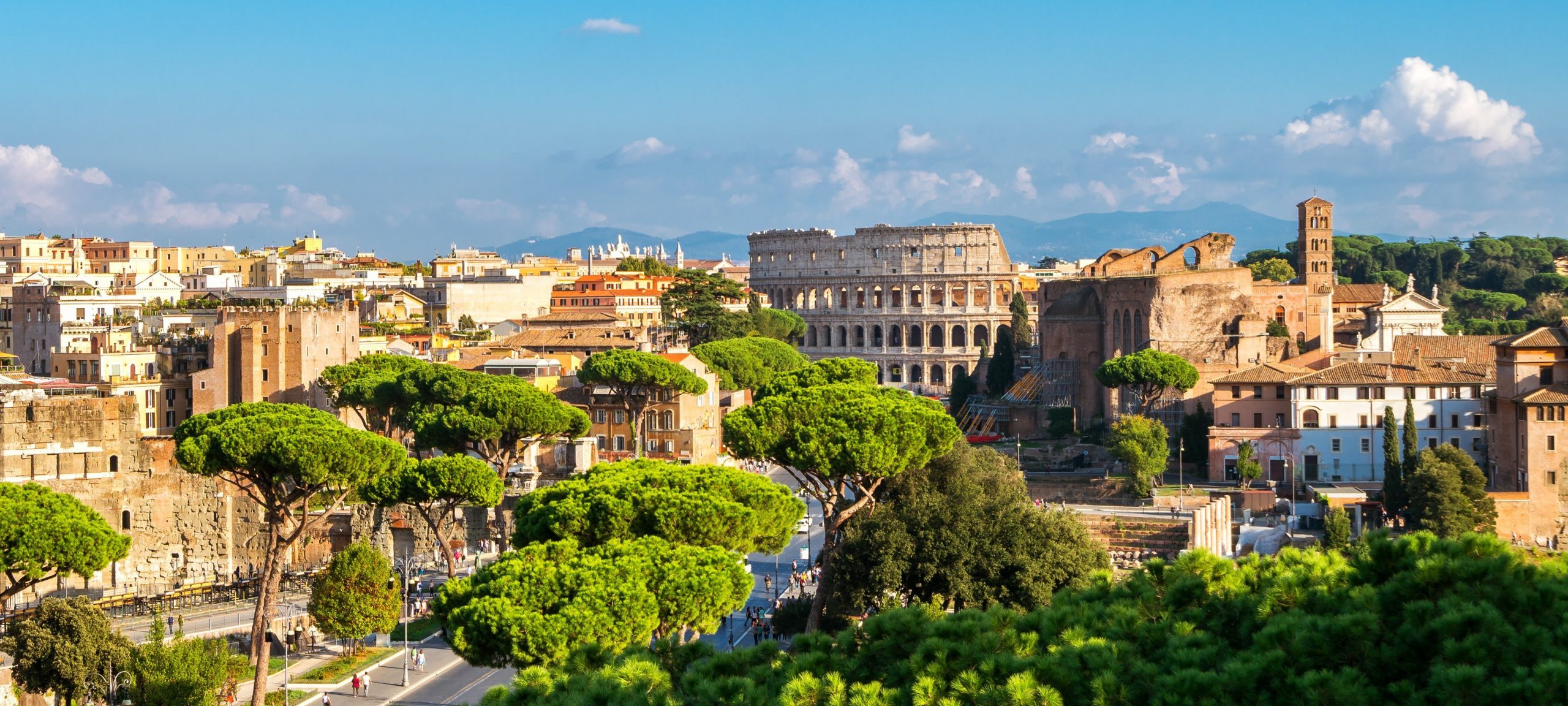Dr. Robert L. Jackson is the Founding Partner of Classical Commons, a senior fellow for both Flagler College and the Chesterton Schools Network, and associate editor for Principia journal. But to the Ancient Language Institute, he is “Dr. J,” a friend of the Institute, a past guest on our New Humanists podcast, and ALI President Jonathan Roberts’s former college professor, where Dr. J first introduced Jonathan to Richard M. Gamble’s The Great Tradition, an anthology of texts about liberal education. That book has provided a majority of the readings discussed on the New Humanists podcast.

Dr. J joined ALI to discuss the classical education renewal movement in America and to introduce Classical Commons, his new effort to help schools hire and train better teachers, to give guidance to administrators, and to connect more people to this growing movement.
ALI: What is Classical Commons, and why does the classical education movement need it?
Dr. Jackson: Classical Commons is a digital community designed to meet the needs of K-12 classical schools nationwide by providing an ever-expanding pool of talent and training resources to help improve the quality of classroom instruction. My colleagues and I have worked with teachers for decades, and we are committed to increasing the professional caliber of teaching by increasing the intellectual substance and enhancing the artful skill of good and great teachers.
Our nation is experiencing a dearth of teachers, even as we witness historic demographic changes: the percentage of Boomers (over 65) will soon outnumber that of children; fertility rates are declining; and population growth is slowing, leaving more individuals dependent on the working age population. In an increasingly competitive marketplace for talent, it will be more and more difficult to attract intelligent, capable people to teaching, without a more compelling vision for education.
Classical liberal arts education is compelling, for it embraces the whole of human experience. The entire cosmos is the intellectual playground for a liberally educated mind.
Yet, fewer and fewer people have experienced the wonders of a classical liberal arts education, including scientific experiments, musical performances, imaginative worlds (literature, poetry), mathematical proofs, historical conundrums, philosophic and religious wonder, and so on. Most people do not have vivid school memories with such rich, formative experiences—and yet that is the ideal of a classical education. Such an ideal requires the skillful participation of passionate men and women dedicated to transmitting the great adventure of liberal education to the next generation.
ALI: ALI attracts classical school teachers who want to learn or brush up on Latin or another ancient language, so I can imagine these students of ours would find good resources and connections on Classical Commons. But what about an ALI student who is not a teacher or administrator but is curious about the classical education movement. Do you have something for them?
Dr. Jackson: Yes, we do. In fact, we recognize that a significant proportion of our audience will be parents and other members of local communities who are interested in learning more about classical education.
Classical Commons exists to make connections, so that local classical schools find themselves with an abundance of resources—including the support of neighbors, businesses, municipalities, etc. So, Classical Commons will be working with its member schools to identify those immediate needs that can be addressed from outside. We will curate and present research on the growth of classical, policy papers concerning classical, lists of schools and providers of classical, so that anyone interested in knowing more can find their path into this classical renaissance. Just as local communities enjoy a park or public space known as the Common, we want to provide a space for the resources to make liberal arts education that much more abundant across the land.
ALI: Classical educators love to argue about the definition of “classical education,” so: How do you personally define it? Can Classical Commons serve schools and teachers across the movement – Protestant, Catholic, secular, etc. – even when people disagree about what exactly their mission is?
Dr. Jackson: Argument goes with the territory, to be sure. Classical educators are quite fond of the dialectic, where the exchange of ideas sharpens our individual and collective thoughts.
Which is the point: the classical tradition draws upon a vast chorus of voices, from our Greek and pre-Socratic philosophers down to contemporary philosophers who are integrating brain science with a robust philosophy of mind—there is a through-line that recognizes classical education as an extraordinary admixture of pagan (Greek, Roman), religious (Jewish, Christian, Muslim), and secular (mostly modern) lines of thought—all of which have drawn upon a shared intellectual heritage, a common tradition, whereby they can engage with each other across political lines, religious dogma, and linguistic differences.
Just think how many languages are represented in a tradition that has traversed centuries and continents—from the ancient Near East through the Mediterranean basin into the Americas and into the democratic age of the modern globe!
Across the globe, how many today have been influenced (even unwittingly) by Plato, Cicero, or Aquinas on law; Augustine or Montaigne on self-reflection; Bacon, Darwin, or Einstein on science; Michelangelo, Caravaggio, or Van Gogh in terms of artistic renderings; Herodotus, Plutarch, or Gibbon on history; or Homer, Virgil, or Dante on the adventures (and misadventures) of the human spirit; and so on and so on.
So, my short answer: I define classical education as a vast chorus of voices from across millennia that continually revisit an every-growing repertoire of thought and expression, which serves as the chorus-book where each new generation learns the notes, the phrasing, the motifs and variations from the most gifted composers on the planet. And—and this is crucial—classical education involves the next generation taking up that songbook, learning from the masters, and developing their own voices, perhaps even contributing a new composition that will join the ranks of the great ones. Only time will tell.
ALI: As Micah Meadowcroft recently documented in his excellent history of the movement for National Affairs, “Classical Education’s Aristocracy of Anyone,” it was the appearance of Dorothy Sayers’ “Lost Tools of Learning” lecture in the pages of a 1979 issue of National Review that helped give the classical education movement both its start and its shape, which was characterized by the presence of Latin in the curriculum and an emphasis on the trivium. Does the presence of Latin make or break classical education? How about the trivium?
Dr. Jackson: While the debate for and against learning Latin has raged for more than a century—e.g., Frederic Bastiat’s critique of “the dead languages”—there is no question that most classical texts, from antiquity to early modernity, were written in Latin. Thus, learning Latin provides the reader with direct access to those texts that constitute our intellectual tradition—the reasons and sentiments of “the best that has been thought and said” (Matthew Arnold).
While we are fortunate to read many of the greats in translation, there is great advantage to joining the Great Conversation for oneself, without the mediation of a translator’s judgment. Such fluency distinguishes the classically educated individual.
While there are other benefits to learning Latin—mastering the roots of English (and other Romance languages), developing one’s grammatical facility, becoming familiar with vernacular imports (quid pro quo, amicus curiae, pro bono)—the fundamental advantage is that of reading the masters in their own words: encountering first-hand the greatest minds of our intellectual tradition.
The trivium represents the “three ways” of language—grammar, logic, and rhetoric. Sayer’s essay argued that each of the ways corresponds roughly to a stage of learning, from the essentials of grammar to the dynamics of logic (dialectic) to the persuasive powers of language. These “ways” or facets of language are formative but not strictly sequential, as language learners (including adults) develop along multiple levels throughout their schooling: lexical and syntactic (e.g., Is that the best word or phrasing?), dialectical (e.g., Is that logical?), and eloquent (e.g., Will my audience find my arguments convincing and believable?).
As such, while the “three ways” appear to correspond to development “stages” of learning for the child and the youth, classical education seeks to envelop the arts of language through the pedagogy of imitation, constantly returning to great books and beautiful works (including the fine arts) so that students are constantly surrounded with exemplars. Through deliberate practice and creative exercises of imitation, students come to learn how to effectively use our shared resources of language, from the simplest sentence to the most elegant argument.
Classical education consistently re-presents the grammatical, logical, and rhetorical aspects of learning by drawing from exemplary texts across various genres (history, story, poem, speech, diary, and so on), where good language communicates wonderful narratives, delightful observations, vivid episodes, and the continuing chronicle of human experience within the wide and awe-filled cosmos.
ALI: What is the most encouraging thing that has happened in the classical education movement in the past 10 years?
Dr. Jackson: There has been a lot more collaboration across K-12 and higher education, with the emergence of teacher training programs tailored to classical education. Courses on the history and philosophy of liberal arts, programs for the refinement of classical pedagogy, working groups dedicated to understanding and propagating the quadrivium, etc. A sure sign that classical education is growing up can be seen in the emergence of scholarship and research dedicated to understanding this often grassroots development from homeschools to coops to hybrids to brick-and-mortar institutions that are now rivaling the mainstream of K-12 education—and influencing colleges and universities to recover that liberal arts traditions, in earnest. Good signs, all!
ALI: And what new pitfalls have appeared now that it has grown so much?
Dr. Jackson: Of nearly 120 schools that have registered with Classical Commons, more than 40 (one-third) have opened since 2020! There is a real appeal to classical education among parents and entrepreneurs—it’s a boom town. However, with such rapid growth comes the real possibility of diluting the essential features of a classical education—not just the great works, learning Latin, and the fine arts in the curriculum, but also the pedagogies most suited to the study and mastery of the subjects. To develop effective classical teaching methods requires genuine apprenticeship, which means we will need scores and hundreds of master teachers to come alongside the next generation of novices, if we want to see classical pedagogy flourish. That is a serious challenge for all of us in this renaissance. And, I’m thankful that ALI is doing its part to improve Latin and language instruction by providing tutorials, boot camps, and other modes of teacher training as part of that essential apprenticing of the next generation.
ALI: What advice do you give headmasters who are having trouble recruiting or retaining teachers?
Dr. Jackson: Get to know your community. Look around and discover, perhaps for the first time, the talent that resides in your locale. The lawyer who knows Latin. The architect who loves the classical forms. The playwright who is performing at the community theater. The actuary who loves to read and do math puzzles. Visit houses of worship. Go to your local Rotary, Lion’s Club, VFW, Moose Lodge, Knights of Columbus, etc. until you find those “happy few” that may well serve to join your band of brothers and sisters who are promulgating the classical liberal arts in your community. Bring them together, as volunteers, substitutes, part-time and full-time teachers, board members, etc. But, let them know that we are all responsible for passing along this Tradition. Together we can restore liberal education to every local community across the land. It takes more than a village—but it begins in your neighborhood, your house of worship, and your civic organizations.
You should also get to know your local and regional institutions of higher education. They can be slippery to navigate, as many have become burdened with the ideological dogmas of our day. But, if you find a few good men and women who remain committed to effective teaching, close reading of their subjects, the cross-pollination of disciplines (or the integrity of knowledge), and if they are people of goodwill, you’ve got a good chance of sniffing out the 5-10% of college graduates who would be worth your consideration.
ALI: A successful school – of any kind – has to get parent buy-in, especially when the curriculum and methodology are not mainstream. Since most parents of classical school students did not receive a classical education themselves, how do you get the parents on board with a tradition that was not handed down to them?
Dr. Jackson: So true, so true. I often say that we are in the business of teaching students first and parents secondarily—but not by direct instruction. Only as we invite parents to continue the journey, demonstrating that we (the teachers and staff) are still actively pursuing the life of the mind and the spirit, will we be able to attract parents to an alternative way of life—a life of genuine leisure, that centers on thought-filled reflection on “the best that’s been said and done.”
If we are to foster communities of excellence (virtue), there must be numerous models: the motorcycle repair shop needs to be a place for first-rate mechanics who also read Homer (cf. Matthew Crawford’s Shop Class as Soulcraft); commerce and business leaders need to be reading and discussing Peter Drucker, Jim Collins, and Alex Havard to promote the kind of liberal mindedness (not partisanship) that is the hallmark of a true leader in the community; other professionals, say doctors and lawyers, need to bring their expertise into conversation with the most profoundly human questions—they should become amateur philosophers, in hopes of discovering how their professions can contribute to the flourishing of society.
If we can portray and propagate that kind of manifold virtue within our communities, parents will be drawn by their peers into the Great Conversation, which always serves to renew the community. With an open, winsome, earnest commitment to revitalize our society, classical education can “win hearts and minds” for the sake of an American Renaissance.
But, it will be an uphill battle. Our digital overlords will continue their efforts to rivet our attention to the nearest screen. Madison Avenue and their Big Clients (pick your favorite) will continue selling us the next new, new thing to satisfy our passions. Politicians and pundits will continue to promise their utopian pay-off if we pursue their candidates’ policies. And so on.
Communities devoted to classical liberal arts education will be counter-cultural in many ways, while paradoxically they should serve as the leavening agent for cultural renewal. It won’t be easy, but it is well worth it—and our nation needs it, at such a time as this…




